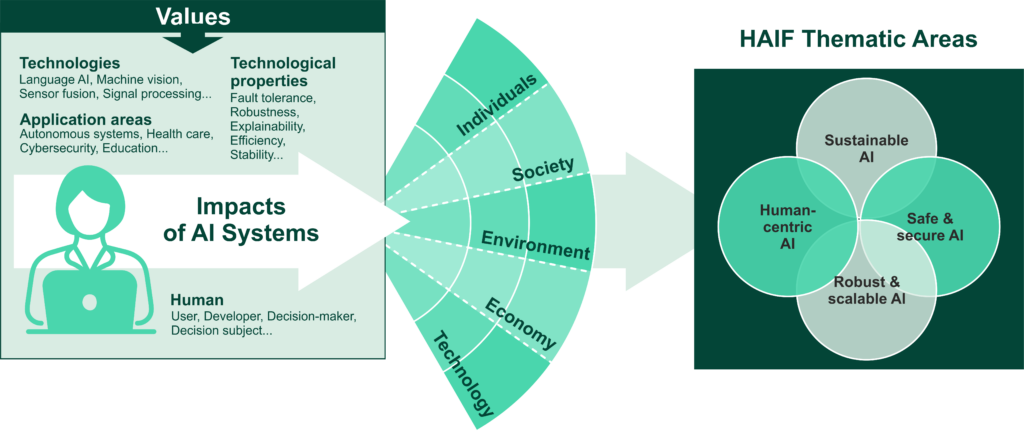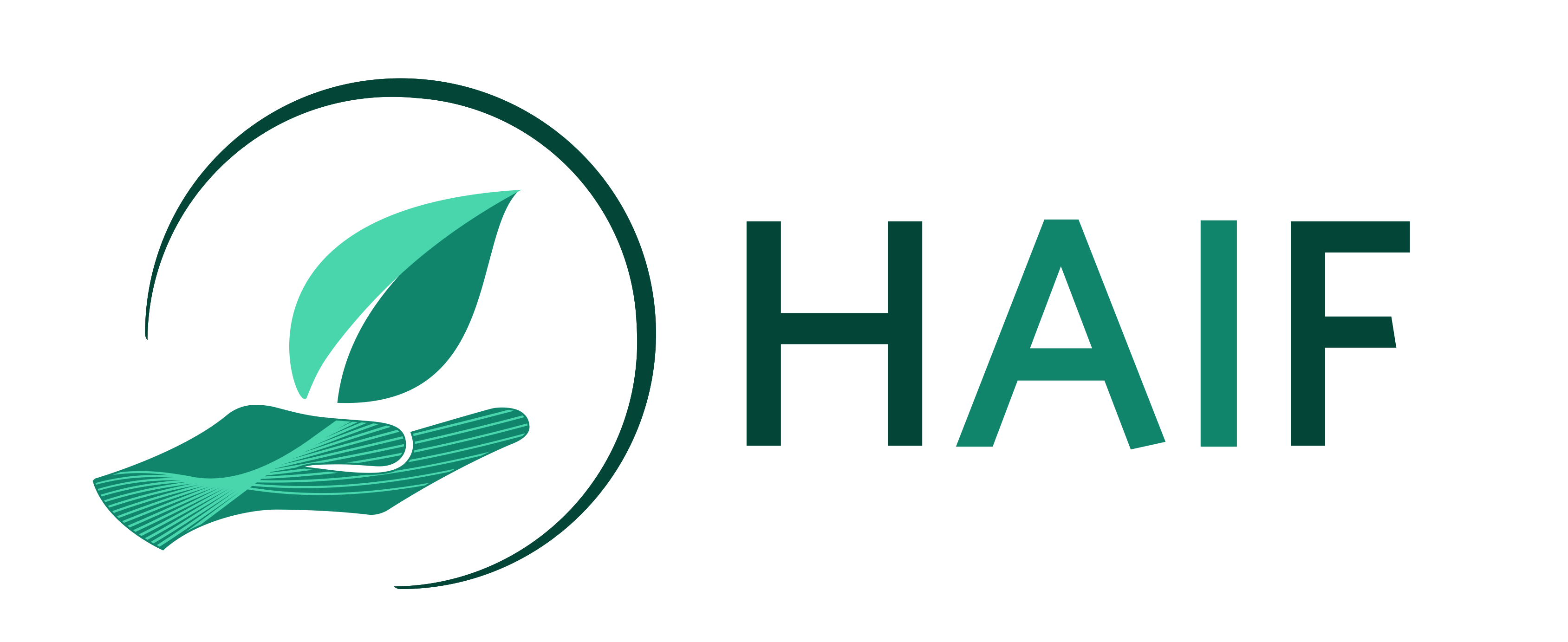Human-Centric Artificial Intelligence for Sustainable Future (HAIF) is a doctoral training project for 25 doctoral researchers hosted by the University of Turku (UTU). HAIF unites research groups from the fields of computing, materials science, social sciences, law, humanities and health sciences. The project’s unique, human-centric approach stems from this interdisciplinary collaboration. HAIF’s objective is to provide training that promotes safe and secure, legally and ethically sustainable use of AI, with an emphasis on humans as developers, users and decision-subjects affected by the technology. In addition to individual and societal perspectives, HAIF’s research themes delve into the technological properties that shape interactions between humans and AI systems (e.g. transparency, interpretability, reliability and accountability). The global research collaborations and industry partnerships within the HAIF network bring in internationality, cross-sectorality and business relevance to the HAIF doctoral training project.

HAIF concept and thematic areas
Legal and ethical prerequisites of HAIF
Selection process of the researchers
HAIF will recruit 25 doctoral researchers through open, transparent and fair selection procedure that is in line with the European Charter & Code. The merit-based selection will be executed by an international and diverse group of external evaluators, each a renowned expert in their field. The external evaluators will receive briefing to ensure ethical code of conduct and equal treatment of applicants. The applicant’s personal details will be visible to the Selection Committee and the coordination team but the external evaluators will only know the name of the applicant. Measures will be taken to prevent implicit biases in evaluation. With their approval, the names of the recruited doctoral researcher will be published on the HAIF website. All applicants may provide feedback about the evaluation and selection process.
Legal and ethical prerequisites
One of the main objectives of the University of Turku is to promote ethically conducted research that complies with the methods and principles endorsed by the scientific community. The University of Turku follows the guidance of ALLEA (All European Academies) for European Code of Conduct for Research Integrity. The University of Turku, like all universities in Finland, is committed to ethical guidelines of Finnish National Board on Research Integrity (TENK). TENK, appointed by the Ministry of Education and Culture, promotes the responsible conduct of research, prevents research misconduct, promotes discussion and spreads information on research integrity in Finland. All researchers and supervisors from across all domains of research at the University of Turku are expected to follow the “Responsible conduct of research and procedures for handling allegations of misconduct in Finland” guidelines prepared by TENK. The University of Turku researchers must also comply with Finnish legislation and the Charter of Fundamental Rights of the European Union.
In order to ensure that legal and ethical prerequisites of the research proposal are fulfilled, the ethics self-assessment of the following the checklist provided by the European Commission is evaluated in the evaluation stage II of the application process. Ethical management is initiated when applicant prepares an ethical self-assessment (a mandatory application document). The scientific integrity and research ethics will also be covered as part of the interview stage of the selection and evaluation process. The selected doctoral researchers are expected to discuss the initial ethics self-assessment together with their supervisors to identify the best practices and potential next steps for ensuring the ethical code of conduct in doctoral research. The final research plan will include a section on research ethics to document the key take-aways from these discussions.
All research undertaken as part of HAIF activities will comply with legal and ethical requirements at national and European levels, including the EU’s AI act, which aims to ensure that AI systems are developed and used responsibly. The fundamental ethics principles will be respected throughout.
Networks for career development
Besides enhancing the doctoral researchers’ academic skills and producing new interdisciplinary knowledge, HAIF will train doctoral researchers on transferable skills such as communications and project management, which are essential for widening their career prospects. HAIF doctoral researchers will become independent, internationally competitive researchers, innovators, technology developers and policymakers with entrepreneurial mindsets and extensive professional networks.
The secondments and other training activities provided in collaboration with the Associated Partners facilitate knowledge transfer between academia, industry and third sector organisations. HAIF has commitments from academic organizations world-wide and other organizations. The partner network will be expanded by matching additional secondment host organizations with the personal research interests and career goals of the selected doctoral researchers. By training the future professionals in the critical themes of human-centric and sustainable AI, HAIF increases competitiveness, jobs and growth in the regional scale and in the EU.
The joint actions in non-EU countries will be carried out following the funder’s terms and conditions. The research conducted during the secondment must be legal in at least one EU Member State. The consistent ethical code of conduct and regulatory alignment within HAIF will be enforced by signing Partnership Agreements with secondment host organizations.
